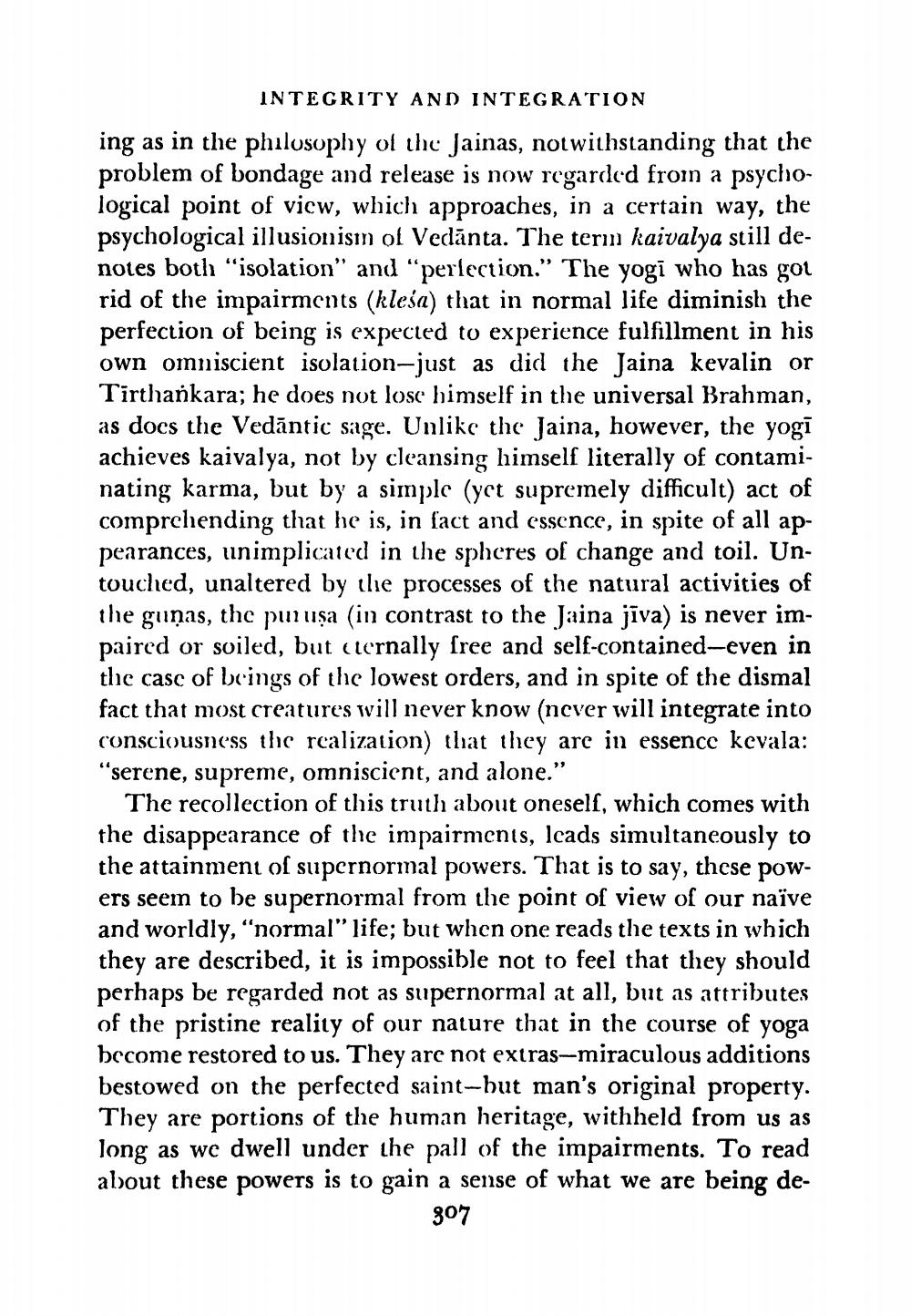________________
INTEGRITY AND INTEGRATION
ing as in the philosophy of the Jainas, notwithstanding that the problem of bondage and release is now regarded from a psychological point of view, which approaches, in a certain way, the psychological illusionism of Vedanta. The term kaivalya still denotes both "isolation" and "perfection." The yogi who has got rid of the impairments (klesa) that in normal life diminish the perfection of being is expected to experience fulfillment in his own omniscient isolation-just as did the Jaina kevalin or Tirthankara; he does not lose himself in the universal Brahman, as docs the Vedantic sage. Unlike the Jaina, however, the yogi achieves kaivalya, not by cleansing himself literally of contaminating karma, but by a simple (yet supremely difficult) act of comprehending that he is, in fact and essence, in spite of all appearances, unimplicated in the spheres of change and toil. Untouched, unaltered by the processes of the natural activities of the gunas, the purusa (in contrast to the Jaina jīva) is never impaired or soiled, but eternally free and self-contained-even in the case of beings of the lowest orders, and in spite of the dismal fact that most creatures will never know (never will integrate into consciousness the realization) that they are in essence kevala: "serene, supreme, omniscient, and alone."
The recollection of this truth about oneself, which comes with the disappearance of the impairments, leads simultaneously to the attainment of supernormal powers. That is to say, these powers seem to be supernormal from the point of view of our naïve and worldly, "normal" life; but when one reads the texts in which they are described, it is impossible not to feel that they should perhaps be regarded not as supernormal at all, but as attributes of the pristine reality of our nature that in the course of yoga become restored to us. They are not extras-miraculous additions bestowed on the perfected saint-but man's original property. They are portions of the human heritage, withheld from us as long as we dwell under the pall of the impairments. To read about these powers is to gain a sense of what we are being de
307




